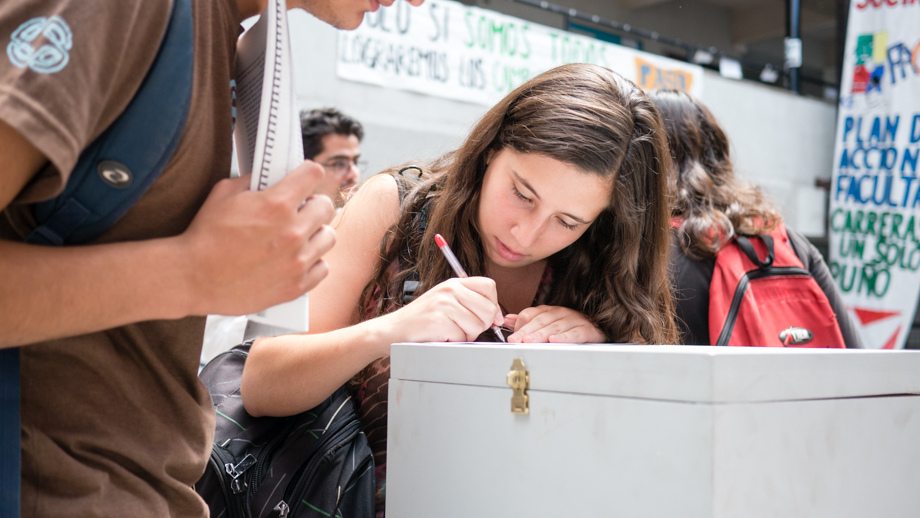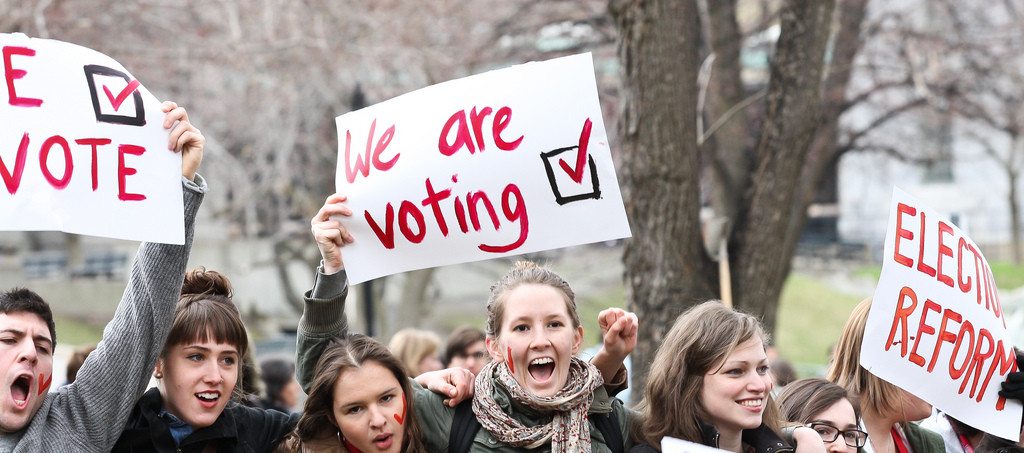Warwick Policy Lab debate youth voter turnout
Warwick Policy Lab (WPL) hosted a discussion on the low turnout of young voters at general elections over the last 20 years, in connection with their on-going research into the issue.
The debate, which took place at Warwick Arts Centre on 30 April, was organised to engage a young audience in the issue of poor turnout among young voters and to discuss solutions and reasons for it.
The event lasted two hours and began with a short film, called Not My Place, that explored the disconnect between young people and politics.
Siobhan Benita, co-director of WPL, controlled the debate and introduced the four panellists, which included both Mike Sani, founder and CEO of Bite the Ballot, a movement to empower young voters, and Rob Ankcorn, Warwick Students’ Union (SU) democracy and development officer.
Low turnout
Dr Abhinay Muthoo, co-director of WPL, put the debate in context as part of wider research, telling the audience about how youth opinion of mainstream politics has been reflected in youth turnouts at elections.
Over the last four general elections, the highest percentage of 18-24 year old turnout was 54 percent, and it dropped as low as 38 percent in 2005.
Dr Muthoo admitted: “We don’t know which factors have been decisive into explaining this turnout”; but he did say WPL were looking into each factor as part of their research.
 Photo: flickr / Francisco Osorio
Photo: flickr / Francisco Osorio
Disengagement
During the panellist speeches that followed, the key message that came across was that young people are not less engaged with politics, but feel distant and disengaged with the mainstream political system.
“I found a deeply political generation, but political with a small p. It’s much more fluid, it’s much more responsive. The young people I spoke to are just as likely to volunteer, to be involved in communities, but they won’t vote.”
Tina Freyburg, associate professor at Warwick University and director of the Centre for Studies in Democratisations, said: “Research shows young people today are not less interested in politics than old people. The question is not how to make people vote but how to further develop engagement with young people.”
Georgia Gould, Labour Party councillor and author of Wasted: How Misunderstanding Young Britain Threatens Our Future, told the audience: “I could go my whole week, if I didn’t reach out to young people, without speaking to young people – that’s especially true for disadvantaged young people.
“I found a deeply political generation, but political with a small p. It’s much more fluid, it’s much more responsive. The young people I spoke to are just as likely to volunteer, to be involved in communities, but they won’t vote.”
One audience member commented: “I’ve never voted but I’m certainly not disengaged in politics: I’m just one person. I’m not going to change anything.”
Online engagement
When the audience got involved many issues and solutions were suggested. Every audience member had something to say, from online engagement – including comments on ‘Milifandom’ – to changing the voting system, and even an idea to change constituencies to age groups.
Regarding online engagement, Mr Sani said: “5 million people are not online. It is essential to connect to them – essential face-to-face communication is key – but there are many that are online. Social media is a young person’s game. [We need] online engagement and offline social engagement.”
The debate continued past its 7pm deadline, and afterwards there was a chance for the audience to carry on discussing with the panel and each other more informally.
“Social media is a young person’s game. [We need] online engagement and offline social engagement.”
The debate was part of a larger on-going piece of research by WPL into youth vote turnout and there was a sense from everyone there that engagement was the key and that this event was definitely a step in the right direction.

Comments